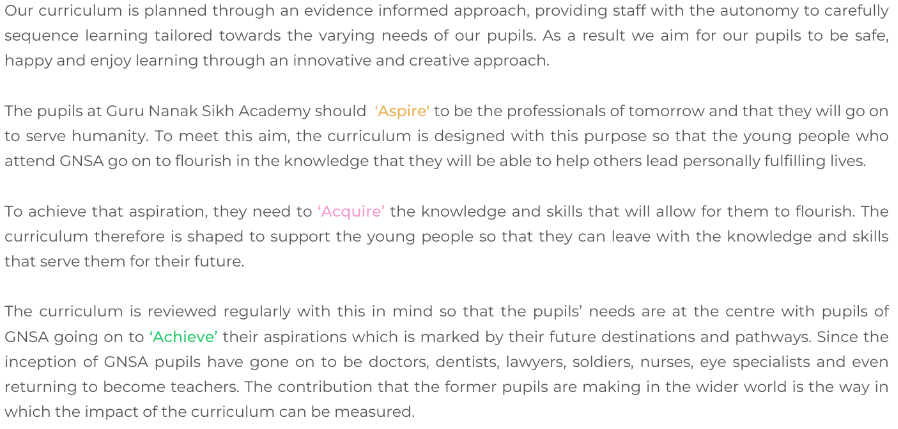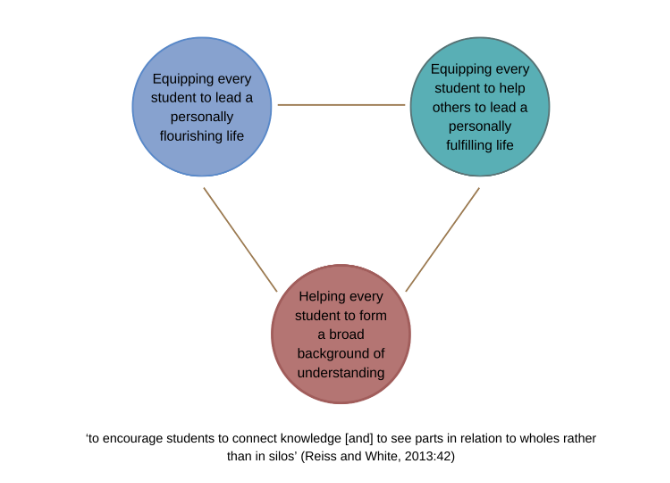Curriculum
Our Curriculum
Our aspiration for every learner:
"Contemplate and reflect on knowledge and you will become a benefactor to others." - Guru Granth Sahib
We achieve our curriculum aims through developing:
Communication
We develop our pupils’ skills to communicate their thoughts, ideas and feelings successfully in a wide range of different forms. They need the ability to read and write well as this broadens horizons, develops imagination and provides a rich vocabulary therefore allowing them to construct knowledge and understand the world.
Problem Solving, Reasoning and Going for Gold
We want our pupils to grow in their independence, resourcefulness, creativity, curiosity and capacity for thinking about and exploring matters deeply – for themselves. We ensure each pupil practises taking risks, learning from mistakes and persevering towards their most ambitious goals.
Our Environment- Nurturing Nature
How we share and use the earth’s resources affects the health of the planet and of every one of whom we share it with- now and in the future. Caring for the environment is an important global issue that we believe should be part of all that we do at Guru Nanak Sikh Academy. Pupils need opportunities to experience the richness of its diversity and show they care about its management and sustainability, thinking about their own duty and responsibility beyond the classroom.
Healthy Living, Healthy Body and Healthy Mind
We will work on building our pupils’ character - including their resilience, confidence and independence – and help them understand how to keep themselves physically and mentally healthy. It is important for each child to have a good knowledge of health, fitness and wellbeing in order to grow up to be happy, successful and valued citizens.
The Wider World and Community
In today’s global world, it is so important to feel we are part of a local, national and international community. Human beings have the same basic needs but different ways of meeting them. Differences in culture, gender, nationality, class, religion, ethnicity, language and status may be significant in explaining these variations and shaping identity. To succeed in such a fast changing world our pupils need to feel confident in their own identity and also feel open, to engaging positively with other identities and cultures and recognise and challenge stereotypes.
How we measure our achievements:
Pupils of GNSA leave the Primary Phase with strong foundations to transition into Secondary School and go on to ‘Achieve’ their aspirations and contribute to the wider world.







